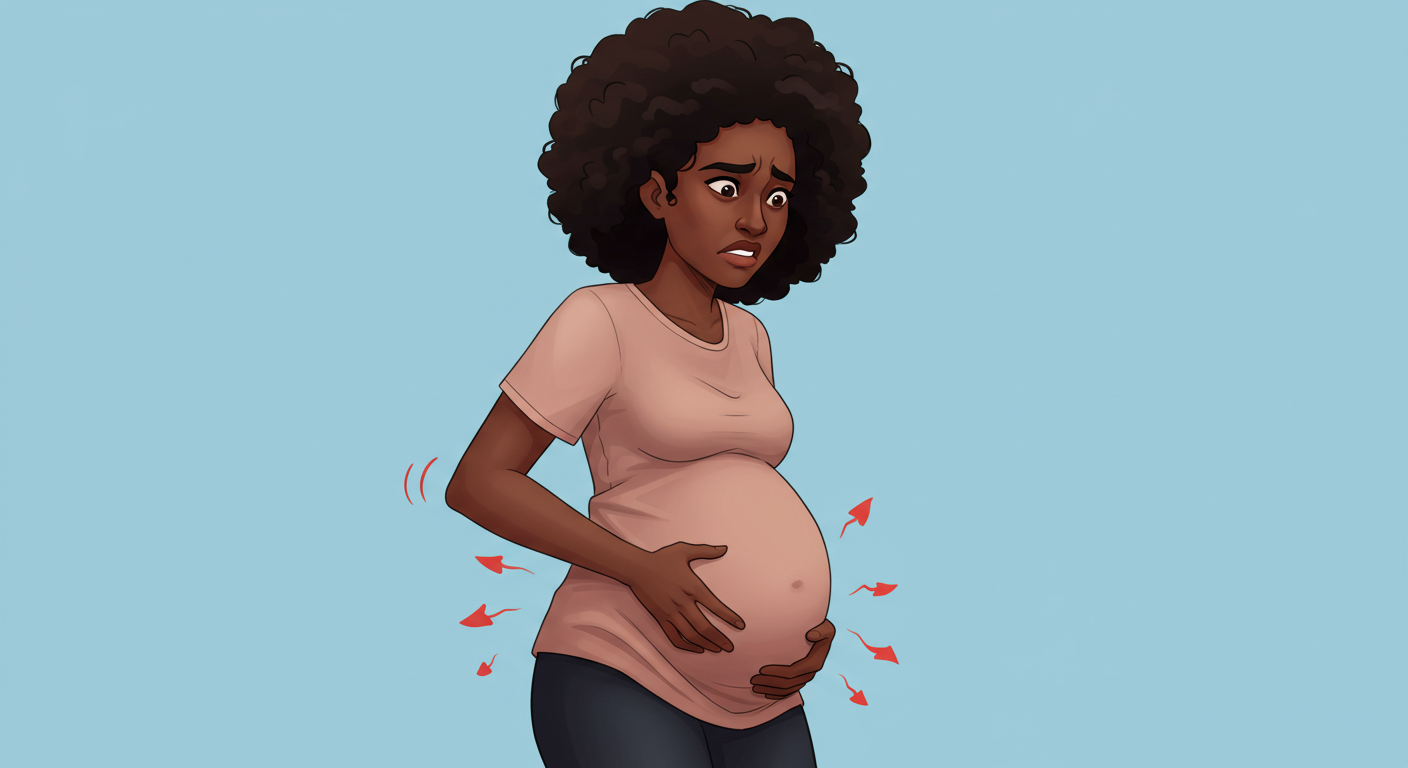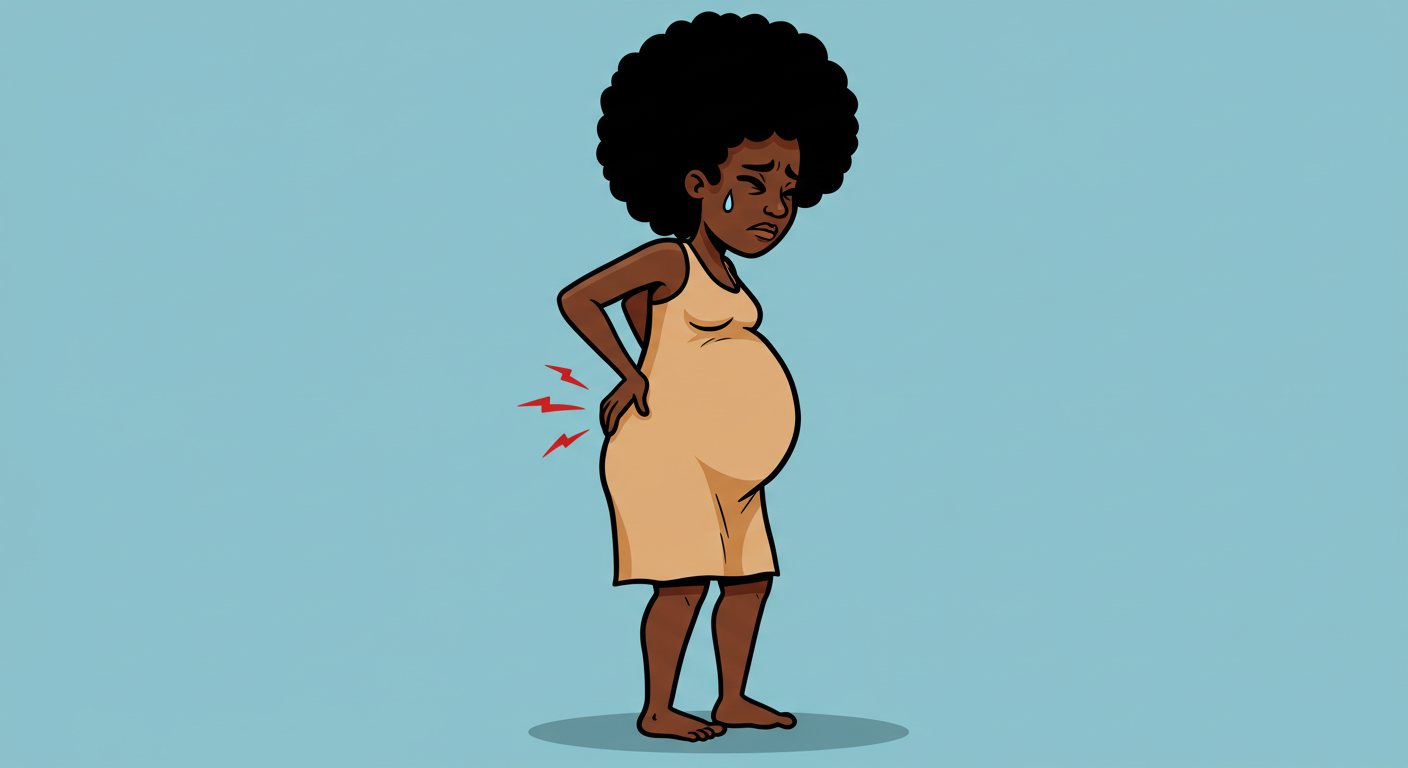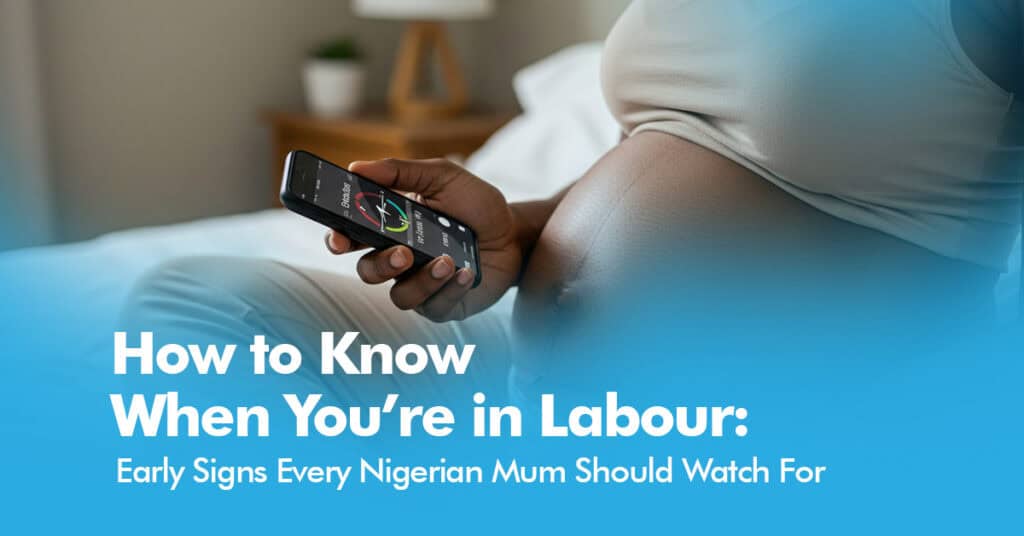You’ve counted down the weeks, packed your hospital bag, and the nursery is ready. But now comes the big question that lingers in every expectant mum’s mind: “How will I know I’m really in labour?”
For many Nigerian mums, the final weeks of pregnancy are filled with excitement, anxiety, and uncertainty. Between Braxton Hicks contractions, fatigue, and strange twinges in your belly, it’s easy to second-guess every sensation. Is it just practice contractions? Is your baby coming now? Or should you relax and wait?
That’s where understanding the early signs of labour becomes so important. Being able to recognise the cues your body gives helps you feel more confident, reduces panic, and ensures you make the right call on when to head to the hospital.
At Chikaro, we believe in equipping mums-to-be with practical, culture-conscious advice that takes into account the Nigerian context – traffic delays, hospital systems, and family expectations. This guide is your go-to companion for spotting the early signs of labour, understanding what they mean, and preparing for that big moment.
What Is Labour?
Labour is the natural process by which your body prepares for childbirth. It’s not just about pain or contractions; it’s a series of carefully coordinated changes that lead to your baby’s safe arrival. These changes include cervical dilation (opening), effacement (thinning), uterine contractions, and eventually, delivery.
Labour generally unfolds in three stages:
- Early Labour – Your cervix begins to dilate slowly. Contractions may be mild and irregular at first but gradually become more rhythmic.
- Active Labour – Contractions intensify, becoming stronger, longer, and closer together. This is when you’ll likely head to the hospital.
- Transition to Delivery – Your cervix reaches full dilation, and your body is ready to push.
But long before you get to the pushing stage, your body gives you early signs of labour. These cues may start days or even weeks before active labour begins.
Why Knowing the Early Signs of Labour Matters
Many mums in Nigeria enter the last trimester wondering how they’ll distinguish between normal pregnancy discomfort and true labour. Understanding the early signs of labour helps in several ways:
- Prepares you mentally: Knowing what to expect reduces fear and anxiety.
- Ensures timely hospital visits: You won’t arrive too late or too early.
- Improves safety: Recognising urgent signs can help prevent complications.
- Eases planning: Helps you alert your partner, organise transport, and avoid panic in emergencies.
The Most Common Early Signs of Labour
Here are the key early signs of labour you should look out for:
1. Regular Contractions
Unlike Braxton Hicks (practice contractions), true labour contractions:

- Occur at regular intervals.
- Grow stronger, longer, and closer together over time.
- Don’t go away with rest, hydration, or a change of position.
Chikaro Tip: Use a timer or mobile app to track contractions. If they’re consistently 5 minutes apart and last 60 seconds each, it’s likely the real deal.
2. Lower Back Pain or Menstrual-Like Cramps
Persistent backache that radiates around your lower abdomen and pelvis is one of the most telling early signs of labour.

Unlike normal pregnancy back pain, this one comes with a rhythmic pattern, often syncing with contractions.
3. Bloody Show or Mucus Plug
During pregnancy, your cervix is sealed with a mucus plug to protect your baby from infections. As labour approaches, this plug loosens and comes out, sometimes tinged with blood.

This “bloody show” is a reliable early sign of labour that indicates your cervix is starting to open.
4. Water Breaking
Your amniotic sac may rupture as a gush or a slow leak of fluid.
According to Healthline, Typically, your water will break because your contractions or baby put pressure on it.
While not always the first sign, it’s a definite indicator that labour is near. In Nigeria, once your water breaks, you should head to the hospital immediately even if contractions haven’t begun.
5. Increased Pelvic Pressure
As your baby descends lower into your pelvis (a process called “lightening”), you may feel extra pressure, almost like the baby is “dropping.” This is another common early sign of labour.
6. Upset Stomach or Loose Bowel Movements
Some mums experience diarrhoea or stomach upset as their body clears itself in preparation for labour. While uncomfortable, this is nature’s way of making childbirth easier.
What About False Labour?
Not every pain means it’s time. Braxton Hicks contractions (often called false labour) can be confusing. They may feel like tightening across your belly but usually:
- Are irregular and don’t follow a pattern.
- Stop with rest, hydration, or a change of activity.
- Don’t intensify over time.
Chikaro Tip: If your contractions disappear after drinking water or lying down, they’re likely not true early signs of labour.
When to Head to the Hospital
In Nigeria, where traffic and hospital wait times can be unpredictable, knowing exactly when to leave home is crucial. Go to the hospital if:
- Contractions are 5 minutes apart for over an hour.
- Your water breaks.
- You experience heavy vaginal bleeding.
- Baby’s movements decrease noticeably.
- You feel sudden, intense pain or pressure.
Nigerian Context: Preparing Ahead of Time
Recognising the early signs of labour is only half the story. Preparation is key:
- Know your hospital route: Lagos mums, especially, need to factor in traffic.
- Keep your hospital bag ready: Include essentials like clothes, documents, snacks, and baby gear.
- Inform your support system: Alert your birth partner, family, or driver in advance.
- Keep money handy: Some Nigerian hospitals require deposits on admission.
- Download a contraction timer app: Technology can help you confirm true labour.
What to Expect at the Hospital
Once admitted, healthcare professionals will:
- Monitor your contractions and baby’s heartbeat.
- Check your cervix for dilation.
- Advise whether to stay or return later.
Don’t feel embarrassed if it turns out to be false labour. It’s always better to be safe than sorry.
Emotional and Mental Readiness
Labour isn’t just physical. It’s also emotional. Recognising early signs of labour helps you manage fear and embrace the process with more confidence. Nigerian mums often have the support of family, but you may still feel anxious. That’s normal. Try to:
- Practice breathing techniques.
- Lean on your partner or support person.
- Remind yourself that every contraction brings you closer to meeting your baby.
Final Thoughts
Every woman’s experience is unique. Some mums feel the early signs of labour days before delivery, while others go from mild twinges to active labour in hours. The key is to understand your body, stay informed, and prepare both physically and emotionally.
At Chikaro, we’re here to walk with you from bump to baby and beyond. Whether it’s preparing your hospital bag, easing your anxiety, or guiding you through the early signs of labour, we’ve got your back.
Labour might feel unpredictable, but knowledge gives you power. Trust your instincts, look out for the early signs of labour, and remember, you are stronger than you think.






